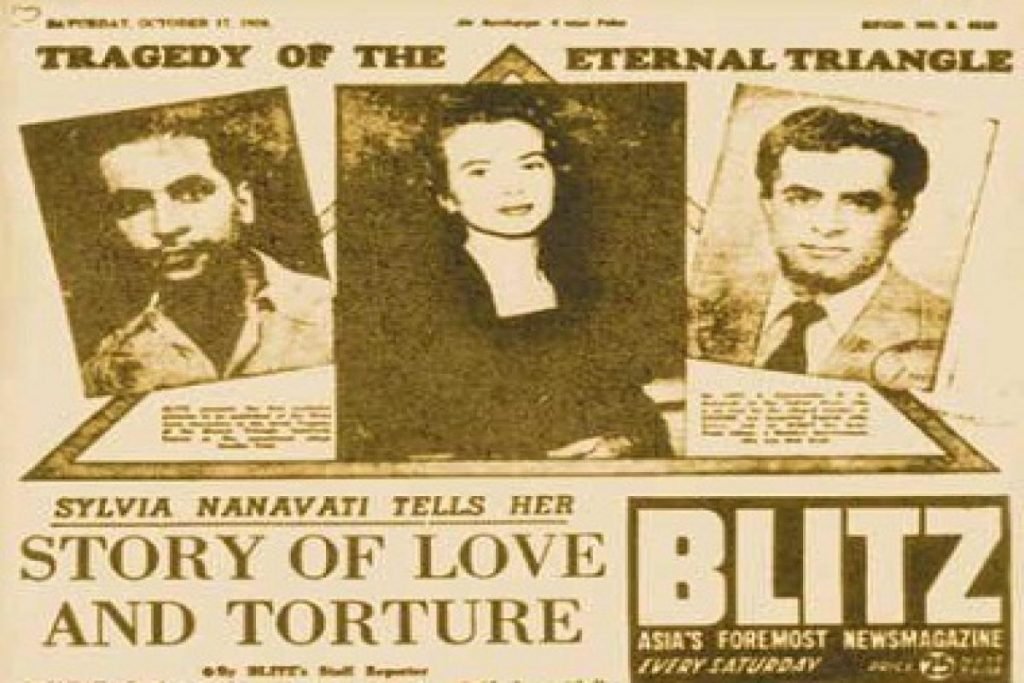Title of the Case: K. M. NANAVATI VS. STATE OF MAHARASHTRA
Citation: 1962 AIR 605
Court: Supreme Court of India
Bench: Subbarao, K.Das, S.K.Dayal, Raghubar
Parties:
Appellant: K.M. Nanavati
Respondent: State of Maharashtra
Brief facts:
Appellant, Kawas Manekshaw Nanavati , a commander in the Indian Navy was charged for murder of deceased Prem Ahuja under section 302 and 304, part 1 of IPC. When the appellant was away for his work, his wife, Sylvia, nurtured an illicit relationship with Mr. Ahuja, a friend of Nanavati.
On 27th April 1959 , Nanavati returned from one of his long voyages. When he came home, his wife seemed to be behaving strangely and was not responsive or affectionate to him. Sensing something, he asked, to which Sylvia confessed about her affair with Ahuja. That evening, Nanavati dropped Sylvia (wife) and their two children at a cinema hall and went to confront Ahuja. He first went to his ship, collected his pistol on a false pretext from the stores along with six bullets, completed his official duties and continued for Prem Ahuja’s office. On not finding him there, he made his way to Ahuja’s home where he found Ahuja. There was a verbal confrontation between the two men. After the confrontation, there was an altercation after which three shots were fired and Prem Ahuja dropped dead. Nanavati headed straight to confess to the Provost Marshal of the Western Naval Command and later turned himself over to the Deputy Commissioner of Police.
The jury found him not guilty of murder which did not find favour with the Sessions Judge and he referred the case to Bombay High Court. The Bombay High Court dismissed the Jury’s decision and convicted Nanavati under section 302 and 304 Part 1 of IPC.
Nanavati filed an appealed before the Supreme Court.
Issue:
The issue of the case was whether Nanavati shot Ahuja in the “heat of the moment” or whether it was a premeditated murder which will determine the conviction of Nanavati.
Argument of the petitioner:
The contention put forth by the counsel of Nanavati was that after hearing Sylvia’s confession, Nanavati wanted to kill himself, but Sylvia managed to calm him down. Sylvia did not tell him whether Ahuja wanted to marry her or not, he intended to find it out himself. So, he dropped his wife and two children at the cinema hall and drove his car to his ship, as he wanted to get medicine for his sick dog. He represented to the authorities in the ship, that he wanted to draw a revolver and six rounds from the stores of the ship as he was going to drive alone to Ahmednagar by night, though the real purpose was to shoot himself. On receiving the revolver and six cartridges, and put it inside a brown envelope. Then he drove his car to Ahuja’s office, and not finding him there, he drove to Ahuja’s flat which was opened by a servant, walked to Ahuja’s bed-room, went into the bed-room and shut the door behind him. He also carried with him the envelope containing the revolver. The accused saw the deceased inside the bed-room, called him a filthy swine and asked him whether he would marry Sylvia and look after the children. The deceased retorted, “Am I to marry every woman I sleep with?” The accused became enraged, put the envelope containing the revolver on a cabinet nearby, and threatened to thrash the deceased. The deceased made a sudden move to grasp at the envelope, when the accused whipped out his revolver and told him to get back. A struggle ensued between the two and during that struggle two shots went off accidentally and hit Ahuja resulting in his death. After the shooting the accused went back to his car and drove it to the police station where he surrendered himself. Hence the accused shot at the deceased under grave and sudden provocation, and therefore even if he had committed an offence, it would not be murder but only culpable homicide not amounting to murder.
Argument of the respondent:
The first contention that was raised was that Ahuja had just come out of the shower wearing towel. When his body was discovered, his towel was still intact on his body. It had neither loosened nor fallen off which was highly improbable in case of a scuffle. Moreover, after Sylvia’s confession, a calm and collected Nanavati took them to a movie hall, dropped them there and then went to his shop to retrieve his pistol, that too under a false pretext. This shows he had enough cooling time and provocation was neither grave nor sudden and that Nanavati had planned the murder. Moreover, according to the testimony of Ahuja’s servant, Anjani, who was present at the house during the occurrence of the incident and so, was a natural witness, testified that there were four shots consecutively in quick succession and the entire event occurred in less than a minute thereby ruling out scuffle. Nanavati walked out of Ahuja’s residence, without explaining to his sister Mamie, who was present in another room of the flat that it was an accident. The deputy commissioner of police testified that Nanavati confessed that he had shot dead Ahuja and even corrected the misspelling of his name in the police record thereby showing Nanavati was not dazed.
Judgement:
The Supreme Court upheld that this was a clear case of premeditated murder and concurred with the decision of the High Court and sentenced him to life imprisonment for culpable homicide amounting to murder.



3 Comments
Pingback: K.M. Nanavati v. the State of Maharashtra : case analysis - iPleaders
Pingback: K.M. Nanavati v. the State of Maharashtra : case analysis
Pingback: K. M. Nanavati vs State Of Maharashtra on 24 November, 1961 - The Company Ninja